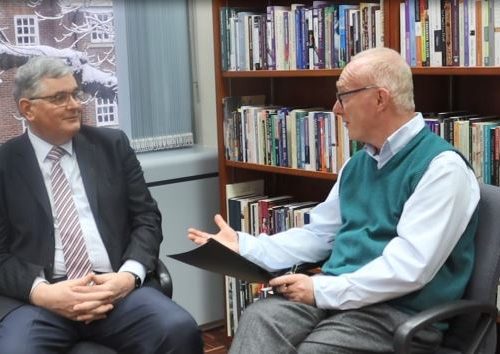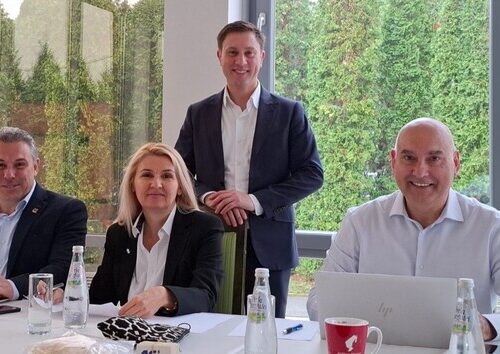1 January 2023 | St. Albans, England [David Neal]
During the November 2022 Trans-European Division (TED) Year-End Meetings, the Executive Committee voted to focus on three strategic mission aims from 2023 – 2025. Under the umbrella focus of #Engaged in Mission, they are:
- Extend Love to the Whole Person
- Grow Lifelong Disciples Together with All Ages
- Multiply Communities in People Groups and Places
In the first of a three-part series of interviews, TED president Daniel Duda explains the meaning and purpose of these aims, and why they are critical to our mission together.
David Neal
Good morning, Daniel, and a very happy new year to you. As we begin the year and think about the mission of the TED, I want to discover with you for a few minutes about its strategic aims and values, including the overriding aim #Engaged in Mission. What does that mean?
Daniel Duda
If we are not engaged in mission, we are not a part of what God is doing today, what He has been doing for centuries, and for millennia. So God is engaged in mission in the universe, and because something went wrong, He’s in the process of restoring it. And once again, we are one year closer to completion. It helps us to be mindful that if we are only thinking about ourselves, and religion is only helping us to make a difference in our own lives, it’s not what God intended, because He wants the whole world to be blessed, and the whole universe to be transformed.
DN
Our priority then is for worshippers of God to be passionately concerned about reaching others for Christ.
DD
Yes, because we have received something by knowing God and His redemption in Christ, on the cross of God at Calvary, because of His resurrection, because of His ministry in the heavenly sanctuary, which is worth sharing with others who don’t know about it yet.
DN
Can you define exactly what mission is?
DD
Mission is telling other people there is healing available for every one of us.
DN
We’re going over this three-part series of interviews to take a look at the strategic values of the TED.
Today, we look at ‘Extending God’s Love to the whole person’, and next time, ‘Growing Life-Long Disciples’, and the third aim is ‘Multiplying Communties’. But for today we’re going to look at extending God’s love specifically to the whole person. Can you unpack that for us?
DD
You cannot be engaged in mission unless you have received love. John says, “We love because He first loved us”. Love in the bible is a principle, an orientation. God is loving, and Matthew says that He loves the wicked and the righteous – for whom He sends His son to reign on everybody. So it is a disposition of love, of wishing the best to the person, which doesn’t mean just a warm feeling, or doesn’t mean that we are capable of treating everybody the same. Of course, we treat our closest family differently than we treat people we don’t know on the other part of the world, but we can have a loving disposition towards all and wishing them the best.
DN
The model for loving then has to be Jesus.
DD
Or God’s love towards us as manifested in Jesus.
DN
If we want to demonstrate what God’s love is like, Jesus is our example, and that’s about grace and unconditionality?
DD
And especially about acceptance, so we need to distinguish between acceptance and approval. Often, we have a problem with that. Jesus accepted everybody, but it doesn’t mean that he approved of the behaviour of any person. We are accepted unconditionally because we are all God’s children created in His image.
DN
That’s an interesting contrast – we can accept a person without approving of their behaviour. And that’s been a big issue of the church for centuries, right?
DD
That’s correct, and we still need to learn how to model that. And we can clearly see that in the ministry of Jesus. Because people then object, “Oh if we accept everybody then anything goes.” No…, definitely not. Because that doesn’t mean we that we approve of their behaviour.
DN
I want to accept my friend unconditionally, regardless of his or her behaviour.
DD
Yes, because the behaviour doesn’t add or take away the value of someone created in God’s image. Our value is given by the fact that we are created as daughters and sons of God in His image, and of course that we are redeemed by Him.
DN
So, for example, I have much unlearning to do on this. Because people are different, perhaps of different political persuasions, have different values, I feel at times, do I want to have anything to do with them? Why would I ever want to embrace them or connect with them? You are saying to me – you need to unlearn on that – right?
DD
Not only unlearn, but we need to try to understand. If I want to love some person that I am in close relationship with, I need (you) to understand where they come from, how they are wired. Why would they come to this conclusion? What is the root of this behaviour? Asking such questions helps me to have a better more functional, a more loving and accepting relationship.
DN
And I follow that model because that is exactly what Jesus did.
DD
That’s correct.
DN
And He accepts us as we are, not what we might be?
DD
But the purpose of His acceptance is so that we become who we might be. Because He can see the potential, and as we have said, we are created in God’s image. Look at the example of the Samaritan woman. Look at the woman take in adultery recorded in John 8. He sees not only where they are right now, He sees them where they can be, with their God-given potential fully developed.
DN
And that still remains a challenge for the church. What does that mean in practise? If someone walks through the door of our church, ‘different’ from us, ethnically, by sexual/gender orientation, or from a different class in society – what does that mean as to how we embrace them?
DD
We create an environment where everybody is welcome, where nobody is judged, and where people can change because of this acceptance. And it brings a new dimension to the community, because by being different we can learn from that, from each other, and unlearn certain patterns that we have inherited from our family of origin – or because of our church family.
We are a new movement born in the 19th century. That’s not where God started working in the minds of people. So, just as our Adventist pioneers had to discover in Minneapolis something that Luther discovered in the 16th century, we need to discover things that God is at work not only in us, through us, but also around us.
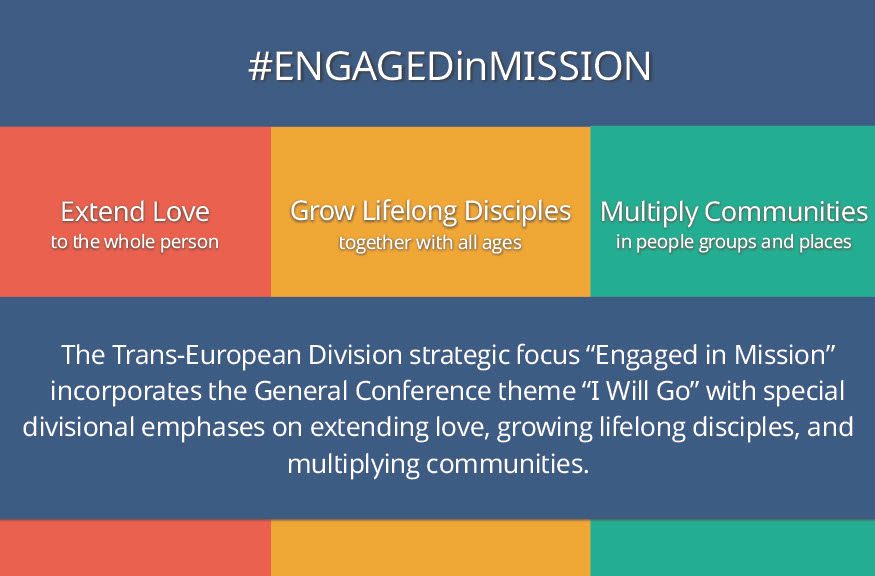
DN
So, if this community that people are invited to is radically different, that’s something bright and cheerful, in contrast to a society that does point the finger, which does say ‘you’re not included’ and this is our club.
DD
Yes, but radically different is not so much in the statistical behaviour of people. We know that Christian’s have the roughly the same divorce rate as non-Christians. Why it is different is because as Jesus says, “You love people, as I have loved you.” The new commandment was not new – that we should love people – that’s an old commandment from the Torah (love God and love your neighbour). What is new is the radical aspect of it – radical unconditional acceptance. So that religion doesn’t turn into this exclusive club, where you are accepted so long as you behave in an approved way, as long as you are just like us.
When that happens, there is no diversity – only uniformity. You are accepted so long as you look like us, speak like us, eat like us, dress like us, think like us. And that is certainly not the intention.
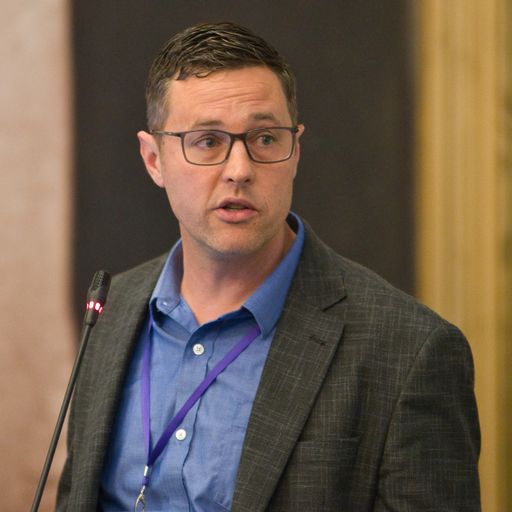
DN
For many of us this is a spiritual journey, because my ability to love the other, surely, can only grow the more I experience God’s love for me.
DD
That’s right. And New Testament Christianity is presented as a ‘Way’ (the first name for Christians), so it’s a journey. The metaphor that Paul uses is that he is walking, he’s putting on a dress so that I can perceive myself in a different light, and so that others will see me in a different context. So, it is a journey, and a journey in which we are all learning, and not only learning about ourselves, but about others and about God – but we are also learning about patience, the patients of saints as well.
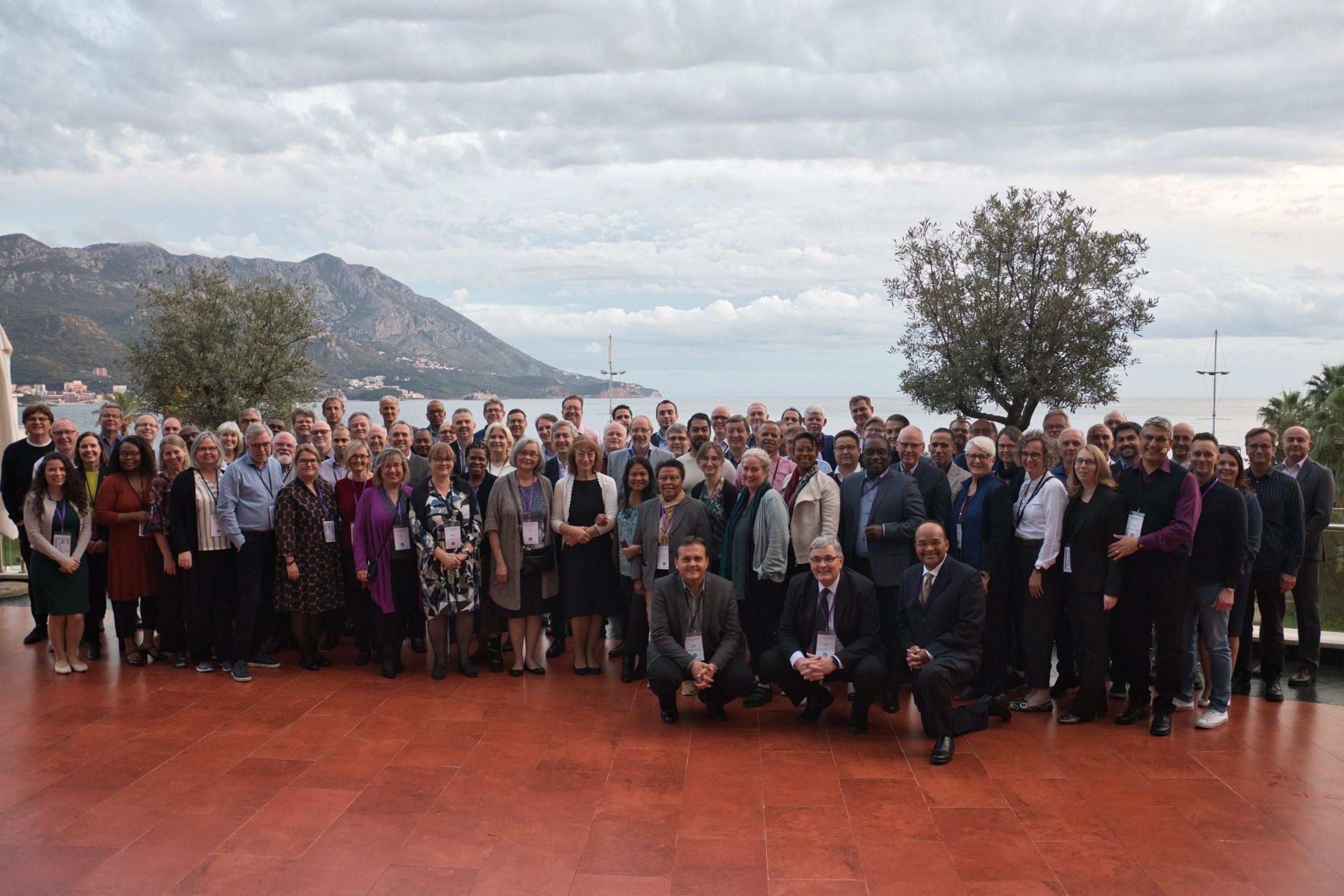
DN
Extending love means extending it to the whole person. How do we understand that?
DD
The story of creation tells us that we are a unit, a unit created as a whole, and in which sin influenced us as a unit, in mind, spirit body, both in the emotional and relational aspects. When we die, we die as a unit, and when we are resurrected, we are resurrected as a unit. In medieval Christianity they were more concerned with saving the soul. Jesus did more healing than preaching, because He was concerned with the whole being.
Jesus is concerned with presenting needs. When people are hungry he feeds them, and then he gives them the sermon. Now of course, when they want to take advantage of that and come again for free food, He gives them a sermon again on the bread of life and the importance of the Son of Man becomes part of every cell, every part of their inner life. So we need to see the interconnectedness. If I trip and hurt my feet, it influences not only how I feel, it influences my spiritual life. It is not as easy for me to pray as it is when everything goes well.
DN
Can we also for a moment consider how Jesus is interested in our temperament, our emotional life and how that affects our overall health?
DD
Sure, because we are all wired differently, we have different temperaments, we have a different way of expressing our relationships, emotionality, and how we process reality. There is no perfect temperament, and all of us together are learning something that will help us live better with one another.
DN
So EQ is as important as IQ in one sense.
DD
Definitely.
DN
Thank you for sharing Daniel. In a few weeks time we hope to continue this conversation about our second strategic value, “Growing Life-long Disciples”…
DD
And we are going to learn how we do it together… because being a disciple is not an individual sport, it is something we do together, just as all parts of our being need to be connected and interconnected together.
DN
Collaborative… here at TED, in the Unions, in the local church or wherever, togetherness is the way forward.
DD
I would like to wish a happy new year to you David, and a happy new year to all our readers, listeners and viewers, not only within the TED territory, but around the world wherever you may be.
DN
Looking forward to continuing this conversation Daniel, very soon.
[Photos: tedNEWS, Anthony WagenerSmith (graphic) / Video production & editing: Vanesea Pizzuto and Marc Neal
